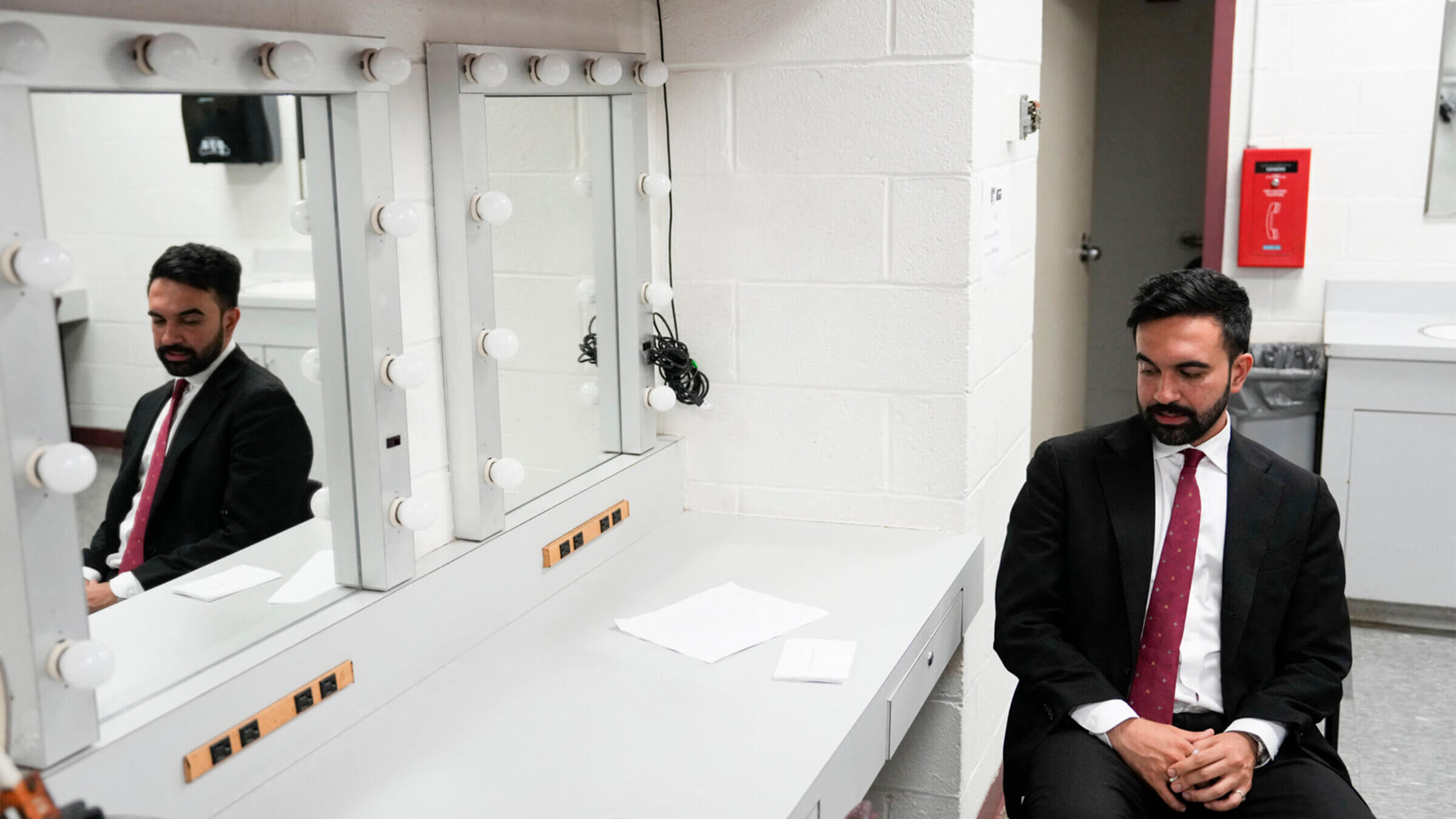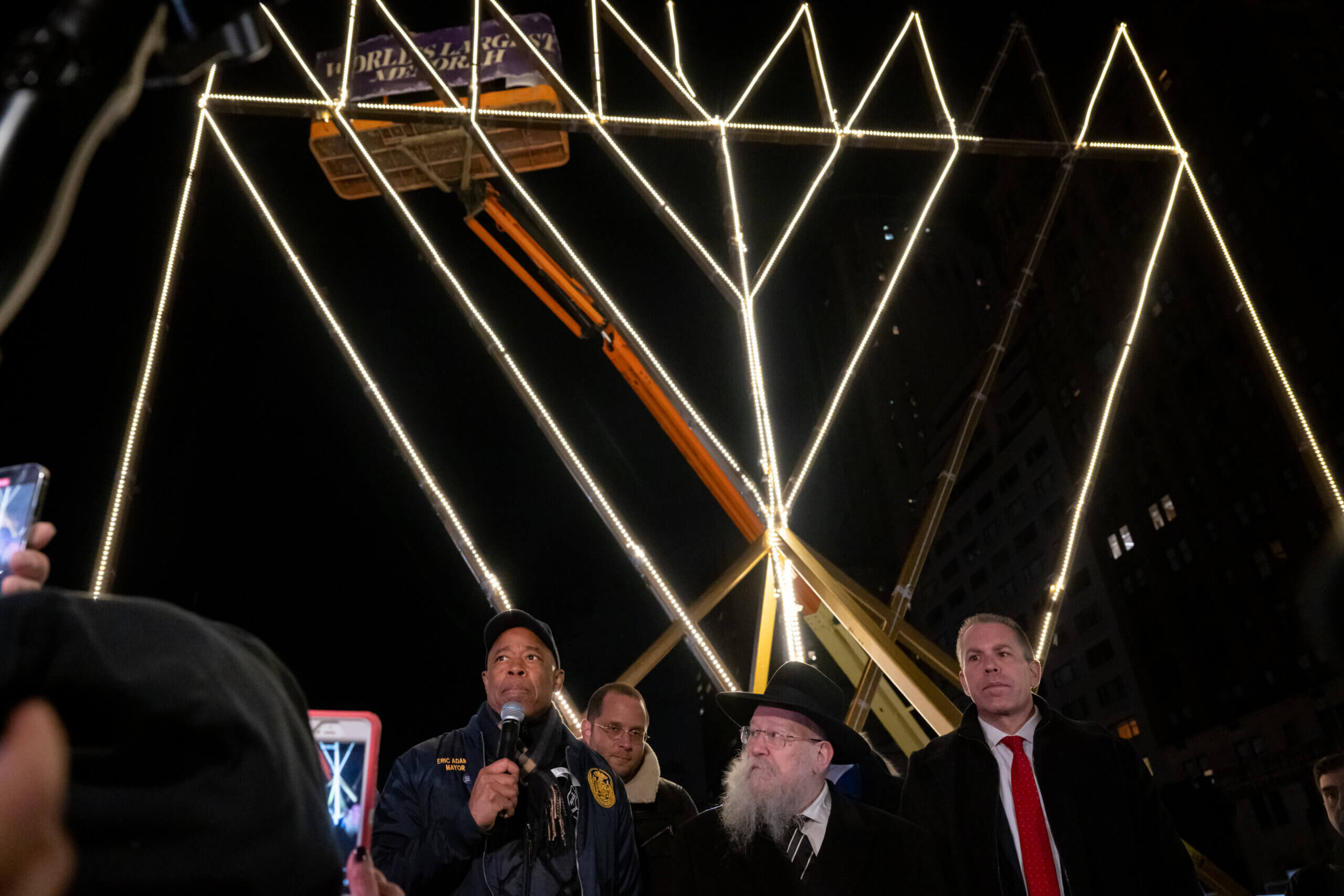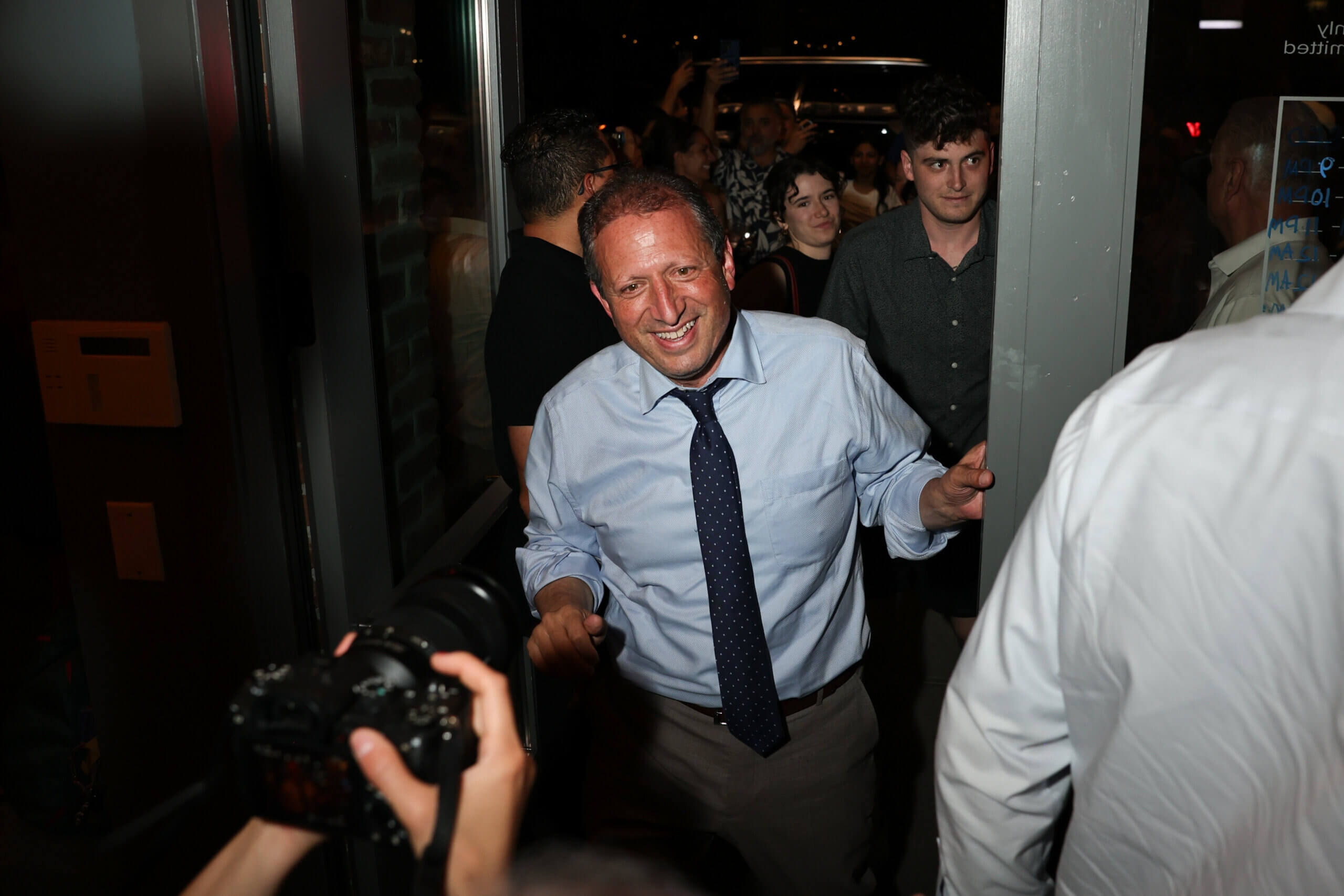Why claims of antisemitism didn’t stop Zohran Mamdani
Outreach to the Jewish community, message discipline and an alliance with Brad Lander helped Mamdani triumph in what was expected to be a closer race

Assemblyman Zohran Mamdani prepares before the New York City Democratic Mayoral Primary Debate in June. Photo by Vincent Alban/Pool/AFP via Getty Images
If the specter of antisemitism loomed over Tuesday’s mayoral primary in New York City, Zohran Mamdani’s resounding victory in what many expected to be a closer contest suggested the line of attack — based mostly on Mamdani’s criticism of Israel and opposition to Zionism — ultimately fell flat.
Observers of the race attributed failure of antisemitism allegations to sink Mamdani’s campaign to a variety of factors, from his disciplined focus on affordability in a city where the cost of living is skyrocketing, to his Jewish outreach and co-endorsement of Comptroller Brad Lander, one of the most prominent Jewish elected officials in New York who was also running for mayor.
For Mamdani’s Jewish supporters, his victory over former governor Andrew Cuomo and nine other opponents was validation that the allegations of antisemitism were nothing more than bad faith smears.
“A lot of moneyed interests tried to conjure up a big, bad image of a Muslim man who hates Jews,” said Sophie Ellman-Golan, a spokesperson for Jews for Racial and Economic Justice, a local group that endorsed Mamdani. “And that image is not compatible with the person Zohran actually is.”
Others saw a much darker message in the outcome.
Rabbi Marc Schneier, a prominent Cuomo surrogate, said he believed Mamdani won because of his opposition to Israel, which Schneier believed was antisemitic, and viewed it as a sign of dissipating Jewish power in New York.
“I don’t know if we have the political clout in a democracy of one man, one vote to really stop and prevent this avalanche from taking place,” Schneier said in an interview.
Allegations fail to resonate
Going into Tuesday, it was hard to doubt the political potency of campaigning against antisemitism. The cause had been championed by Democrats and Republicans, and used to justify major federal policies including deportations and stripping billions of dollars in federal funding from Ivy League universities.
Adams announced in April that he was leaving the Democratic Party to run for reelection on the EndAntisemitism ballot line.

And Cuomo, who began his return from the political wilderness last year by launching an organization meant to combat antisemitism, made the issue a central topic of the primary as he painted Mamdani as a threat to the Jewish community.
Whitney Tilson, a hedge fund manager and longshot in the Democratic primary, similarly devoted much of his limited airtime to condemning Mamdani over his positions on Israel and antisemitism.
The claims that Mamdani, a 33-year-old state lawmaker and democratic socialist, is antisemitic hinge on his views about Israel. He vocally supported a boycott of Israel in the past, though downplayed that position during his mayoral campaign, and focused his statement in the immediate aftermath of the Oct. 7 Hamas terrorist attack on criticism of the Israeli government.
Mamdani also sponsored a bill in the legislature two years ago that would revoke the tax-exempt status of nonprofits that fund Israeli settlements in the West Bank; and he vowed to arrest Israeli Prime Minister Benjamin Netanyahu for war crimes if he travels to New York City.
While AIPAC and Democratic Majority for Israel have had success in defeating Congressional candidates who they deem too critical of Israel, those organizations generally fund attack ads that don’t mention foreign policy at all.
“They made it a referendum on anti-Zionism being antisemitism and they lost.”Spencer AckermanJournalist and Zohran Mamdani supporter
But in a city where Jews make up roughly 15% of the Democratic primary electorate, Cuomo and his allies, including billionaire donors and major corporations worried about Mamdani’s economic agenda, chose to focus on Israel. A political action committee affiliated with Cuomo alleged that Mamdani “spews antisemitic tropes” and that his actions “raise serious concerns for Jewish New Yorkers,” while Cuomo repeatedly insisted that “anti-Zionism is antisemitism” and hit Mamdani over his refusal to say he would travel to Israel as mayor.
“What happened over the last three weeks is fair to understand as a class war, and the wealthy reached for something that typically works,” said Spencer Ackerman, a journalist and political analyst who supported Mamdani. “They made it a referendum on anti-Zionism being antisemitism and they lost.”
Mamdani, who drew on an enthusiastic base of support that paralleled that of other progressives like Sen. Bernie Sanders, was able to parry the allegations with poise while being advised by Rebecca Katz, who recently helped Ruben Gallego, a moderate Democrat, win a tight U.S. Senate race in purple Arizona.
He drew some flak from his left-flank for agreeing that Israel had a “right to exist” — 85% of Jews say disagreeing with that statement is antisemitic — but demurred when asked if it should exist as a Jewish state, saying he wanted to see a state “with equal rights for all.”
One Jewish leader who has worked with Mamdani described him as “a very gifted communicator” who was able to “finesse answers” in a manner that impressed even some Jews who opposed his policies.
“Everyone texted me that — the content of what he was saying aside — you want to like him,” said the leader, who spoke on the condition of anonymity because he was not authorized to give interviews.
Mamdani buoyed by Jewish support
Mamdani’s supporters say the allegations that he was antisemitic were also blunted by the support he received not only from organizations like Jewish Voice for Peace and JFREJ, who largely align with his positions on the Israeli-Palestinian conflict, but also from his relationship with Lander, a longstanding elected official in the city and self-described liberal Zionist with close ties to the Jewish community.
Mamdani and Lander took advantage of the primary’s ranked-choice voting system to endorse each other earlier this month and campaign together, encouraging their supporters to rank the other as their second choice.
When Mamdani was criticized for declining to criticize the slogan “globalize the intifada,” which some Jews associate with terrorist attacks against civilians, Lander took the opposing view, but the divergence didn’t seem to dampen their alliance.

“It would be impossible to think that the guy in the mailers and on the ads who they’re implying threatens the lives of Jewish New Yorkers would have a relationship with Brad Lander if that was even within shouting distance of truth,” said Ackerman.
Mamdani also spoke with Jewish media and at synagogues, participated in the UJA-Federation’s mayoral forum and displayed Yiddish posters in Orthodox neighborhoods of Brooklyn.
And Cuomo, who is Catholic, could be an awkward advocate for Jewish interests at times. He was plagued during the campaign by sexual harassment allegations and other scandals from his time as governor and once reportedly complained about attending a Jewish outreach event during Sukkot saying “these people and their f——- tree houses.”
“A beyzer gzar zol er af dir kumen,” Lander responded after Cuomo described him as insufficiently supportive of Israel, using a Yiddish curse meaning “may an evil decree come upon him.”
Mamdani frequently argued that he had a real plan to fight antisemitism — pointing to his planned Department of Community Safety — while many voters began to mock the media’s fixation on Israel during the final weeks of the race.
“The way that it just felt like he was getting asked these gotcha questions over and over that were meant to make him look like some kind of monster that he isn’t, it did become a parody, and that’s important to say,” said Simone Zimmerman, a co-founder of IfNotNow who canvassed for Mamdani.
But for Schneier, the rabbi who campaigned for Cuomo, and other opponents of Mamdani the fight must go on. Schneier said that at Cuomo’s election night watch party prominent New York Jews were describing plans to move to California or Florida if Mamdani becomes mayor. He anticipates more Jews moving full-time to the Hamptons, where he runs a synagogue, if Mamdani is not defeated in the November general election.
“Just imagine Mamdani as mayor when there are student protests going on at Columbia or NYU, imagine Mamdani as mayor when Israel faces another war with its neighbors, imagine Mamdani as mayor when the prime minister arrives in New York,” Schneier said. “The attack must continue.”
















